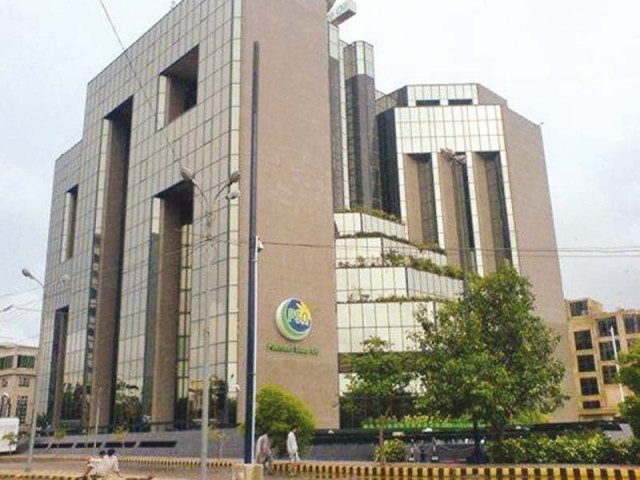FIA seeks help in probe into OMCs
Requests assistance of attorney general office to vacate multiple intra-court appeals of oil firms

The Federal Investigation Agency (FIA) has sought assistance of the attorney general office to vacate multiple intra-court appeals by different oil marketing companies (OMCs).
During a briefing to the Cabinet Committee on Energy (CCOE), an FIA official presented an update on the inquiries, probe and forensic investigation regarding recommendations of a ministerial committee, constituted to examine the crisis and shortage of petroleum products in the country during June 2020.
However, the cabinet body on energy observed that the progress on investigation by the FIA was quite slow, which needed to be expedited.
In this regard, the FIA additional director general requested for assistance of the attorney general office to expedite the matter in the Lahore High Court for vacating multiple intra-court appeals by different OMCs.
When contacted, oil industry officials said that the Petroleum Division and Oil and Gas Regulatory Authority (Ogra) keep a check on the supply and demand situation and imports of petroleum products. Even the Petroleum Division allows imports of petroleum products keeping in view the demand in the country.
The government of Pakistan regulates and manages prices, margins and product procurement through Ogra and the Petroleum Division.
The oil industry says that the oil commission report ignored key factors of the fuel shortage. It says that the commission ignored the unprecedented Covid-19 impact on product planning, procurement and supplies.
The other reason was the ban on imports and delay in import permission that resulted in mismanagement and the oil crisis.
The Petroleum Division disallowed imports during April 2020 as 70% HSD and 40% PMG were imported. This uncalled-for ban and the subsequent delay in permission affected the supply chain and the stock level of OMCs started to decline drastically.
The imposition of the ban at a time when prices were at their lowest in the international market caused a loss to the national exchequer.
There were some other reasons that created the fiasco, such as refinery operations during lockdown and adverse impact due to anomaly in June pricing based on PSO cargoes for April and May 2020.
Other factors were stoppage of smuggled products due to closure of border in lieu of Covid-19, delay in vessel berthing due to port congestion and delay in conversion of White Oil Pipeline to transport PMG to the north.
Ogra, being the sole regulator, imposed a penalty as prescribed under Rule 69 of the Petroleum Rules, 2016 for the alleged shortage of POL products.
The entire report of the commission is based on vague assertions, conjectures and surmises of members of the inquiry commission giving no details of submissions and data provided by the OMCs.
It made the report more challenging as the commission did not have any member with technical, commercial or business knowledge/expertise of the oil industry.
The fuel shortage in June 2020 caused due to various factors and the whole supply chain impacted mainly due to the pandemic and subsequent events, hence shifting the blame to a few OMCs is unfair, unjust and an effort in futility, OMCs’ officials said while talking to Express Tribune.
The recovery recommendation by oil commission seems to be linked with the perceived loss amounting to Rs7-8 billion to PSO as mentioned in the report during the month of June 2020.
The report has also ignored significant inventory losses incurred by OMCs on account of heavy price reduction announced by government.
Oil companies say that exchange losses incurred by the OMCs particularly during 2018 till 2020 were mainly due to high devaluation of Pakistan rupee.
OMCs work in a regulated margin regime, which is less than 3% of the sales price, and with turnover tax of 0.75% on gross receipt rather than OMCs margins and ensures OMCs pay turnover tax in case of loss (effective tax rate is higher in turnover tax regime).
Published in The Express Tribune, September 2nd, 2021.
Like Business on Facebook, follow @TribuneBiz on Twitter to stay informed and join in the conversation.



















COMMENTS
Comments are moderated and generally will be posted if they are on-topic and not abusive.
For more information, please see our Comments FAQ